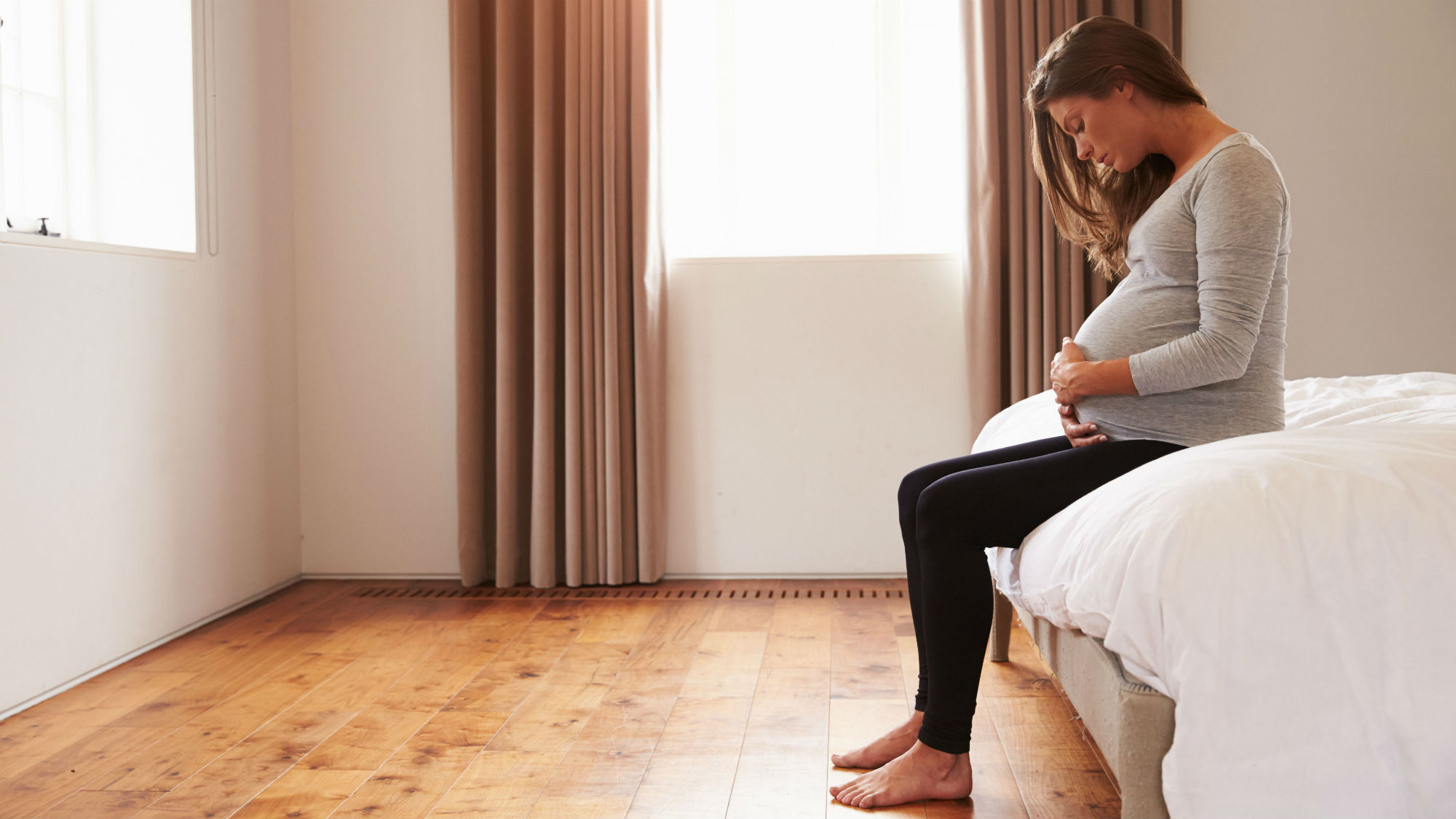Everything you need to know about hyperemesis gravidarum
No, hyperemesis gravidarum is NOT just morning sickness, says writer Charlotte Haigh


No, hyperemesis gravidarum is NOT just morning sickness, says writer Charlotte Haigh
Hyperemesis gravidarum is more than just a bout of morning sickness, and its back in the news following reports that the Duchess of Cambridge is again suffering from extreme sickness during her third pregnancy. But little is known about the symptoms, treatments and side effects of living with hyperemesis gravidarum for nine long, agonising months. It is thought that as many as one in one hundred women suffer from hyperemesis gravidarum during pregnancy and the continuous vomiting can eventually lead to muscle weakness, depression and even kidney failure. Here's everything you need to know, from the women who have experienced hyperemesis gravidarum.
What is hyperemesis gravidarum?
Forget what you think you know about pregnancy sickness – this form of sickness is in a different league, according to Dr Shauna Fannin, GP and spokesperson for online pregnancy support resource, Emma’s Diary. ‘Pregnancy sickness is extremely common with around 80 per cent of women suffering, and not just in the morning despite its misleading name,’ she says. ‘But hyperemesis gravidarum only affects one per cent of pregnant women and is a condition at the extreme end of the pregnancy sickness scale.’ The extreme, relentless vomiting often leads to further complications that require hospitalisation, such as haemorrhages due to the straining and organ failure triggered by dehydration.
What are the symptoms of hyperemesis gravidarum?
Morning sickness is bad enough. But if you have hyperemesis gravidarum you can vomit up to 50 times a day. And unlike standard pregnancy sickness, the extreme form doesn’t go away after the first trimester, although it may ease up later in the pregnancy. ‘I was sick every single day, multiple times, for the whole nine months,’ says Beck Jones, 37. ‘It was so frustrating when people used to tell me I’d feel better after 12 weeks, then after 20 weeks. It did get a bit better after 20 weeks but it never went away. Once, I had to pull the car across two lanes of traffic to throw up in a layby. Another time I was sick in my handbag.’
Is it dangerous?
As you vomit so often and are unable to keep food down, hyperemesis gravidarum can have serious consequences. ‘It can quickly lead to dehydration as you can’t even keep down water,’ says Fannin. ‘You might also have severe fatigue, muscle weakness, burst blood vessels in your eyes, a dramatic drop in weight, salt imbalance and kidney problems. Unsurprisingly, it can lead to depression and has been associated with long-term health problems for the mother, such as kidney damage and malnutrition.’ Gemma Edwards, 35, says, ‘I had hyperemesis gravidarum in all three of my pregnancies and was vomiting 20 to 50 times a day. Now I’m losing my teeth because of the decay caused by stomach acid coming back up repeatedly.’ But no matter how ill you are, the good news is that your unborn baby is rarely affected – although they could be born at a lower birth weight if you lose a lot of weight due to sickness.

What causes hyperemesis gravidarum?
Doctors aren’t certain but there seems to be a genetic element – so if your mother or sister had it, you’re more likely to experience it too. And if you had hyperemesis gravidarum in a previous pregnancy, you’re more likely to suffer in another one. It is believed to be caused by a rapidly rising blood level of a hormone called human chorionic gonadotropin (HCG), which is released by the placenta.
Can you manage it with alternative remedies?
‘With morning sickness, acupuncture can be very helpful,’ says fertility and women’s health expert Emma Cannon. ‘Taking a tablespoon of apple cider vinegar in warm water, eating little and often and staying hydrated by drinking plenty of water can all support you. But hyperemesis gravidarum is very different to standard morning sickness and you’ll need medical management.’ You should always talk to your doctor or midwife immediately if you’re vomiting very frequently, says Shauna.
Marie Claire Newsletter
Celebrity news, beauty, fashion advice, and fascinating features, delivered straight to your inbox!

If you are looking for an alternative remedy to try out, Myrtle & Maude offers natural products for particularly 'queasy days' to ease the symptoms of morning sickness. Their Mum-To-Be Pregnancy Pack contains specially formulated herbal tea, Vitamin B6 peppermint bon bons and acupuncture bracelets.
Shop now: Myrtle & Maude Mum-To-Be Pregnancy Pack for £24 from myrtleandmaude.com
Hyperemesis gravidarum treatments
‘The doctor will ask how often you’re vomiting, what you can eat and drink, if you’ve lost weight, if you’re passing urine normally, and whether you have symptoms such as light headedness,’ says Fannin. ‘They’ll check your blood pressure and pulse and test your urine for the presence of substances called ketones, which indicate dehydration. If you’re dehydrated, the doctor will arrange hospital admission for intravenous fluids via a drip – and this may need to happen more than once during the pregnancy. You’ll also be prescribed anti-sickness medications to help ease symptoms – these are safe to use in pregnancy.’
What does it feel like to live with hyperemesis gravidarum?
Having extreme pregnancy sickness can be very traumatic. When it’s at its worst, you won’t be able to work or even leave the house. Some women consider terminations because they are so ill. And hyperemesis gravidarum can be incredibly isolating because most people don’t understand its severity. ‘One of the hardest things was other people’s reactions when they found out I was taking anti-sickness drugs,’ says sufferer Beck, from Stamford. ‘Nobody wants to take medicine when they’re pregnant. But when you can’t even keep down sips of water and have to lie flat on your back in the dark for weeks because lifting your head makes you vomit, a drug that lets you sit up, keep some water down and tolerate at least a tiny bit of food is worth it.’ For many women with the condition, the sickness only passes completely when they’ve given birth. ‘The first meal after I had Laurie was amazing,’ says Beck. ‘I shovelled the food into my mouth – it was the first time I’d been hungry in nine months and the first time I’d felt I wasn’t being poisoned.’
Fellow sufferer Bella, from Norfolk said, 'My baby is due in just over two weeks time. The moment I found out I was expecting, my heart filled with excitement but that was soon to be diminished a week later. I couldn’t keep anything down but I was told that was normal. As my suffering worsened I was put on medication which didn’t really help in my opinion. I had lost around two and a half stone, had sustained haemorrhages in my eyes from the straining while being sick. I was being sick every 15 minutes throughout the day and night. I was bedridden and eventually admitted to hospital and diagnosed with hyperemesis gravidarum. Despite all of the recent media attention the condition is still massively misunderstood. It was truly debilitating.'
Emma, from Hampshire is also currently suffering from hyperemesis gravidarum. She says, 'I was also hospitalised for two weeks in my last pregnancy having almost died from starvation and dehydration. I have been in and out of hospital numerous times during my current pregnancy to have IV fluids and IV anti-emetics to help control the symptoms. I'm currently pregnant again and have to take two different types of tablets to help prevent me from being sick as I have been physically passing out and collapsing - also knocking myself out in the process. I believe there needs to be much greater awareness of this life-threatening condition amongst pregnant women and those who are planning to have children.'


